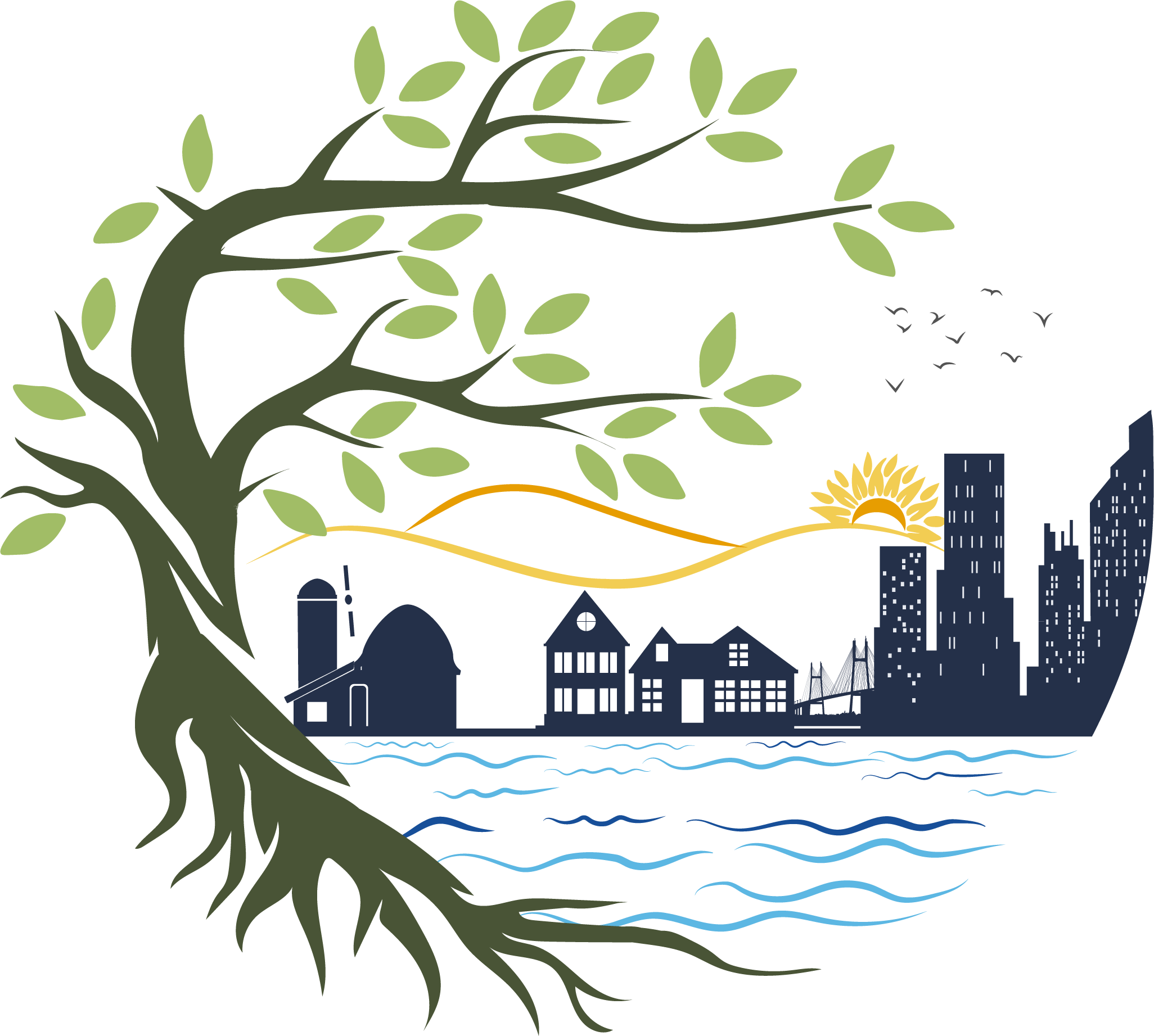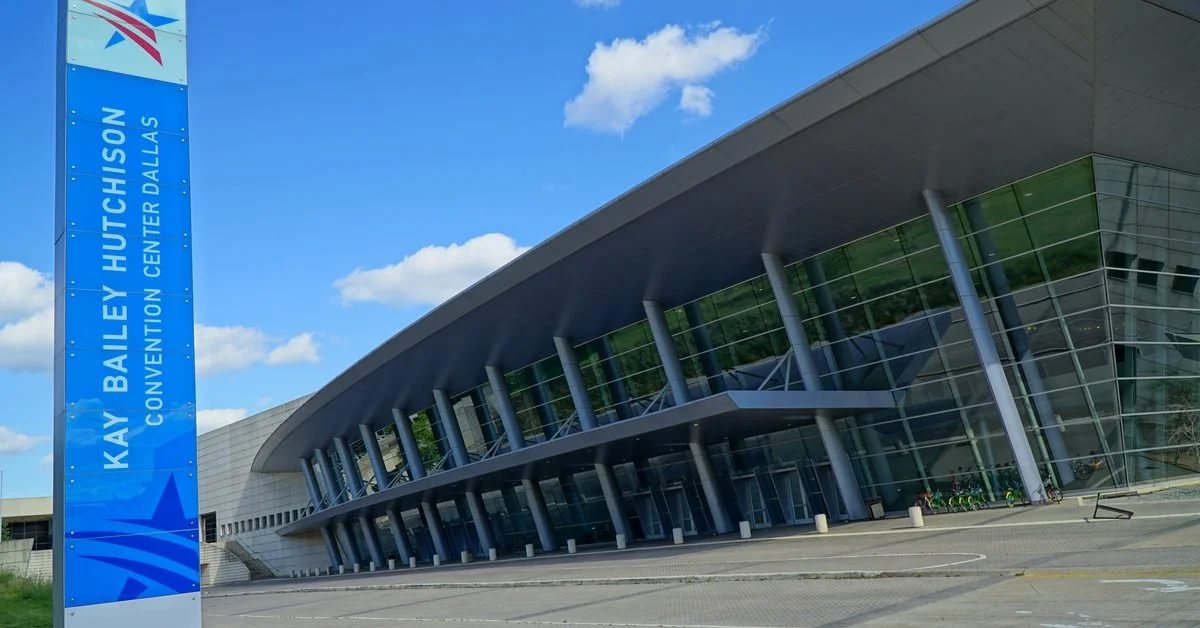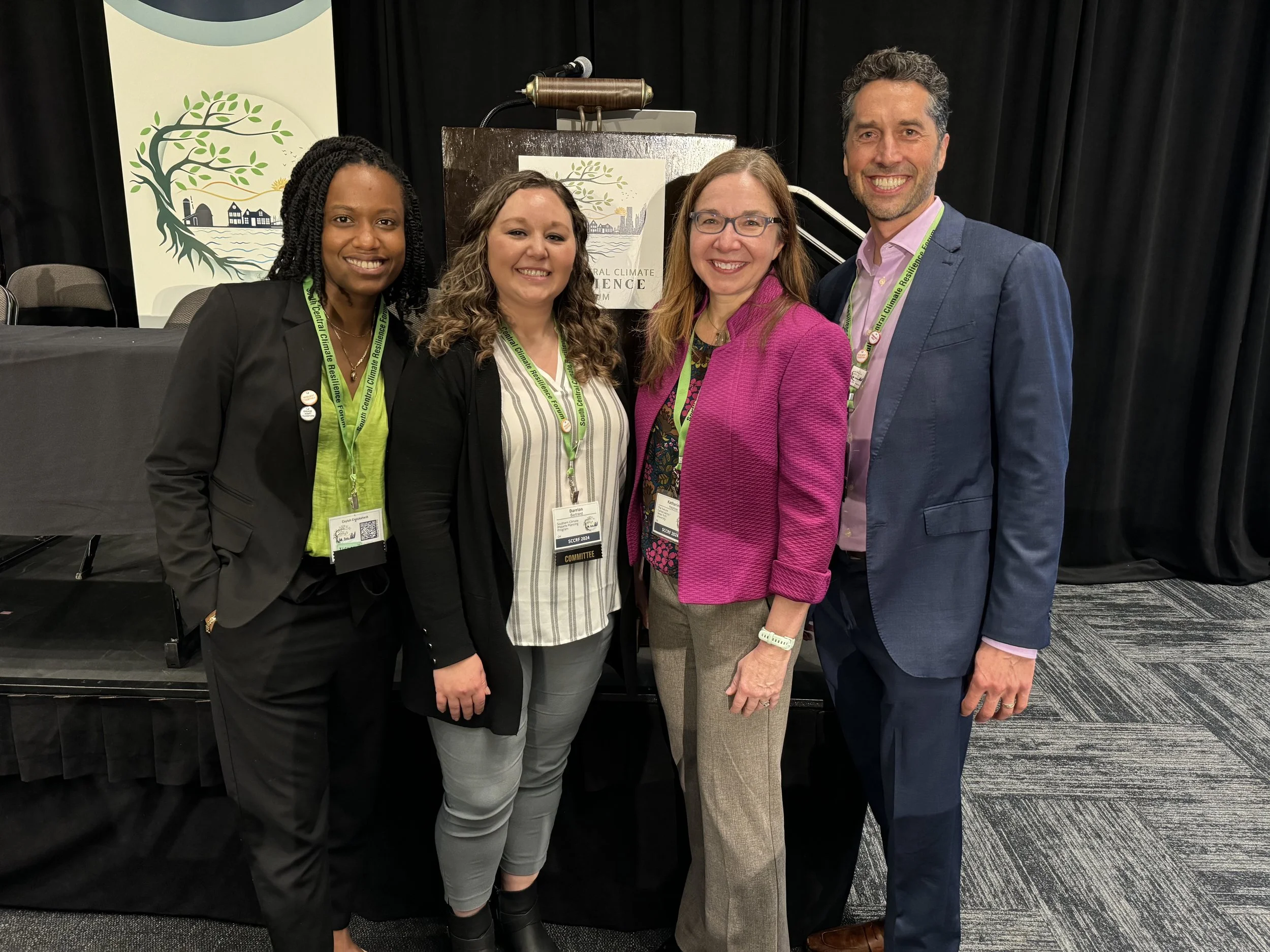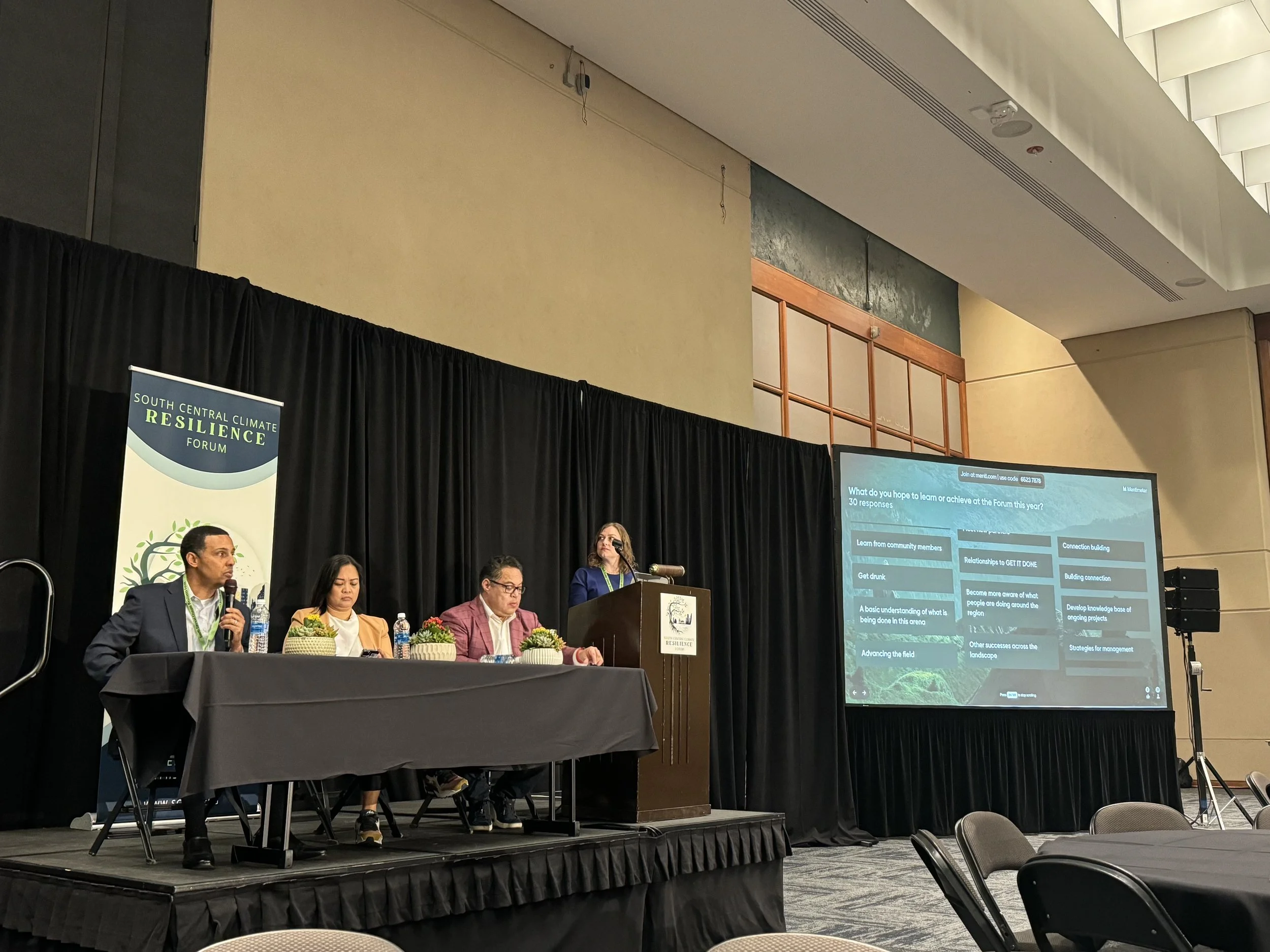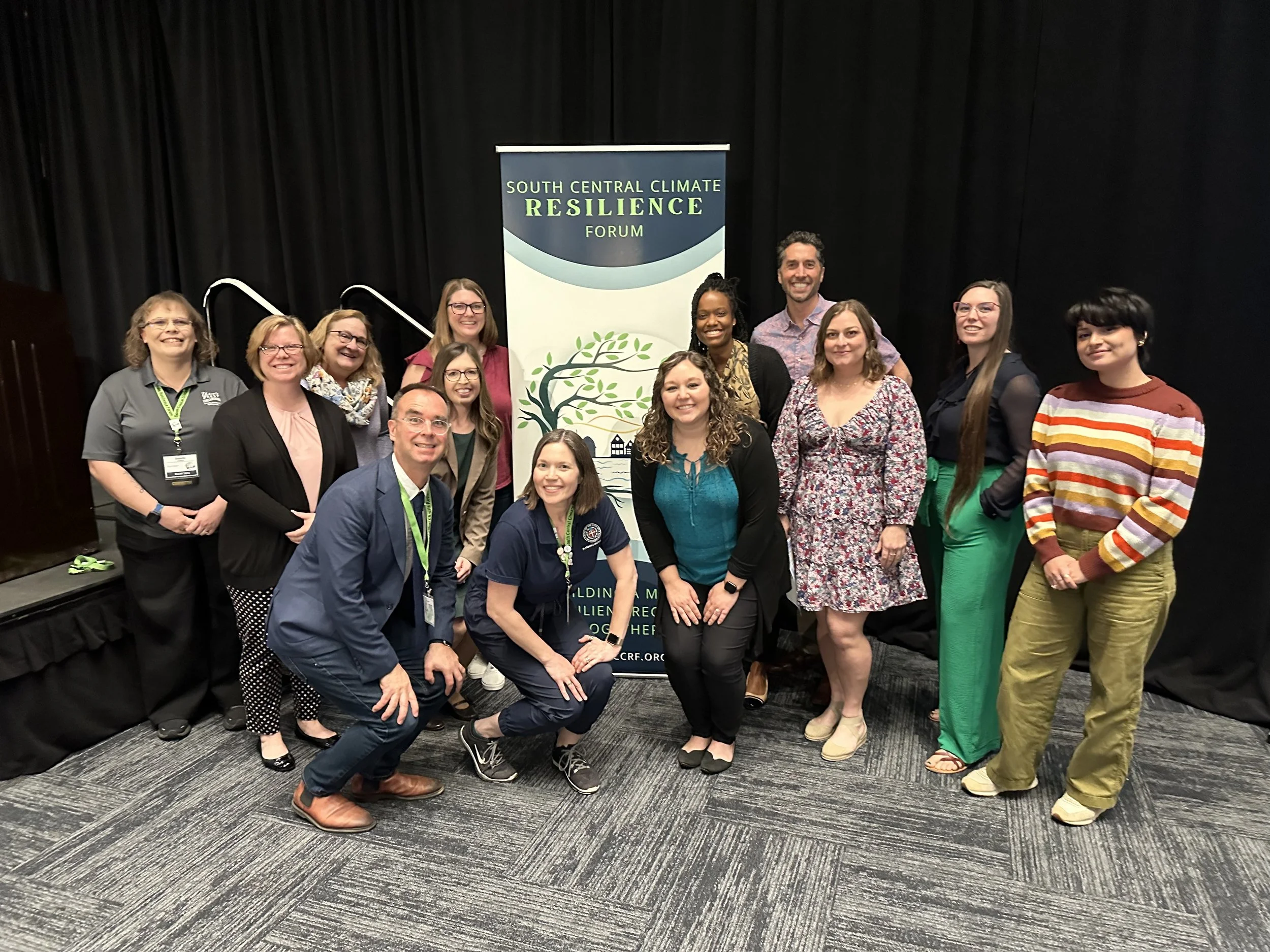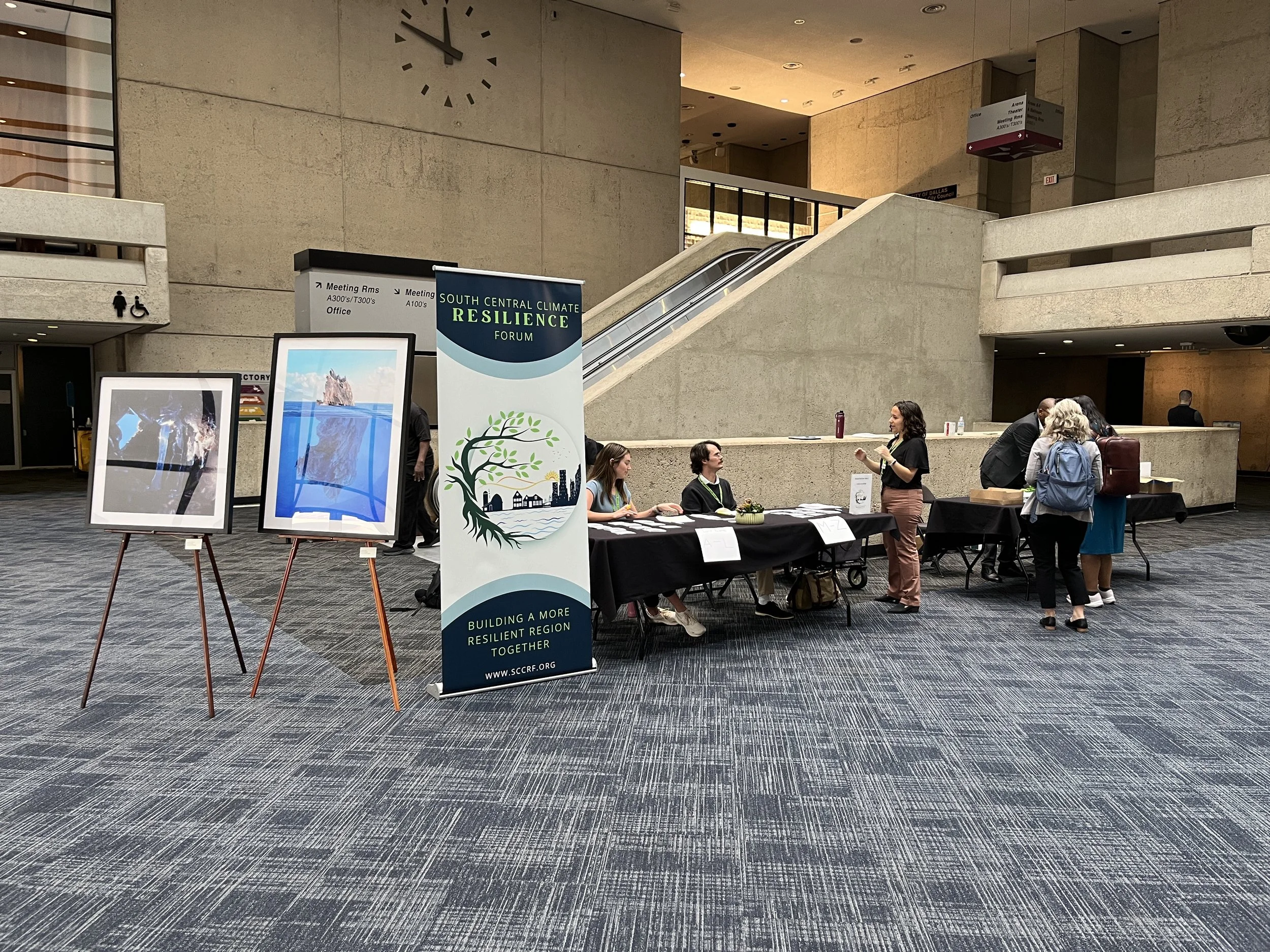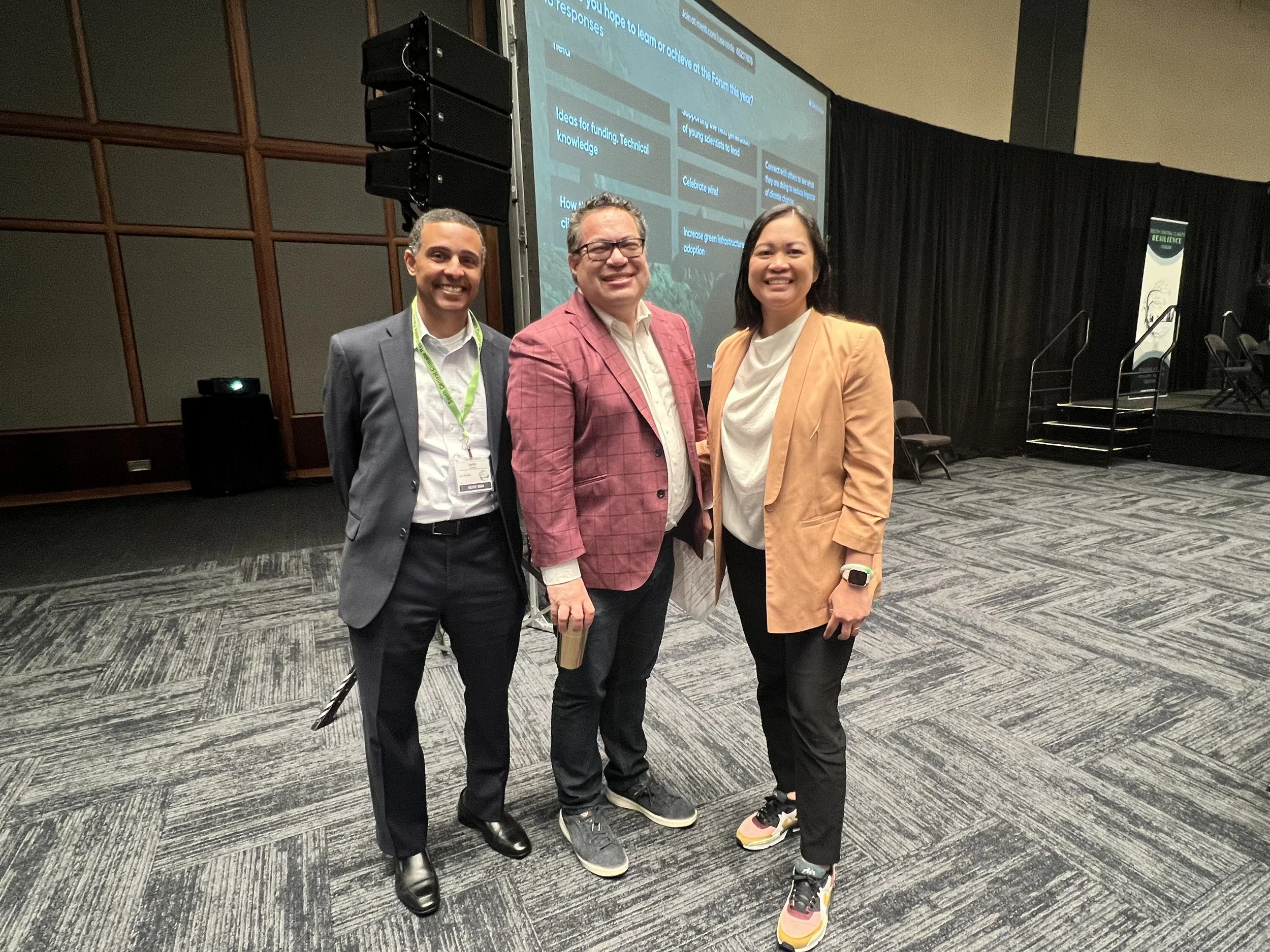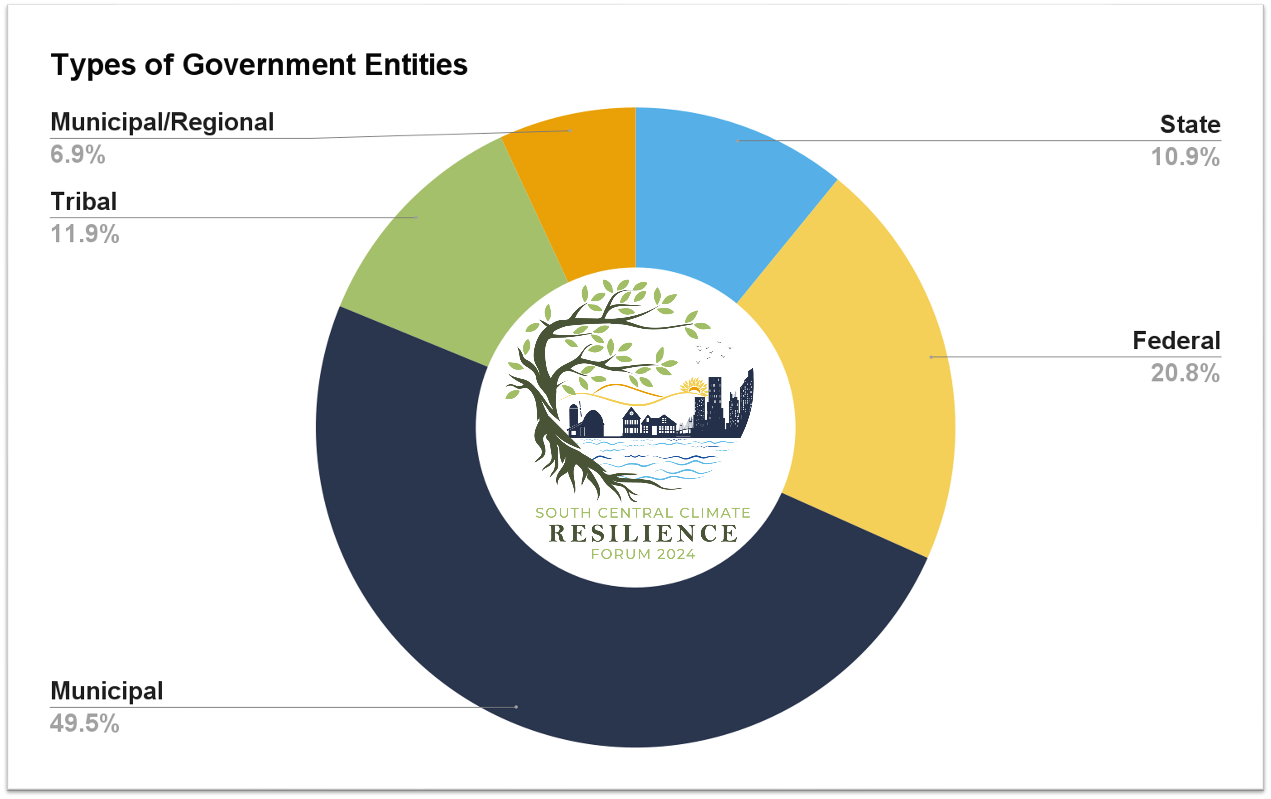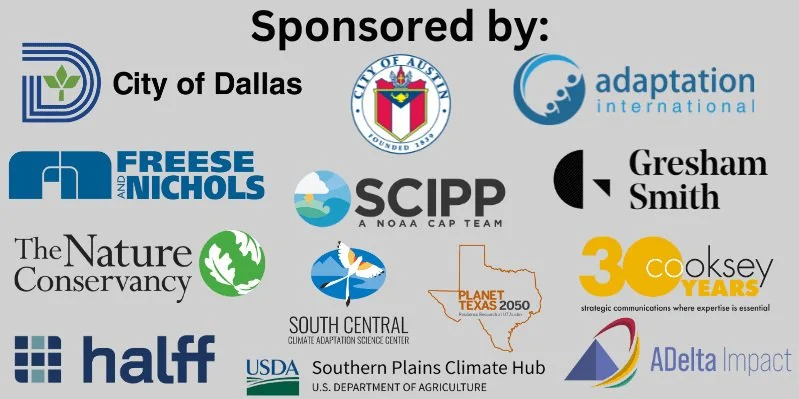
2024 SCCRF Highlights
The inaugural South Central Climate Resilience Forum (SCCRF) was held from April 2-4, 2024, at the Kay Bailey Hutchison Convention Center in Dallas, TX. The Forum focused on fostering meaningful dialogue on climate resilience and adaptation across Arkansas, Kansas, Louisiana, Oklahoma, and Texas. This was the first time a regional branch of the National Adaptation Forum had occurred in the south-central U.S.
2024 Forum Feedback
“I feel like I really learned things I can take back and apply to my job to improve my city’s sustainability.”
“Great inaugural event! Kudos to the planning team on organizing and getting a diverse conference base to show up. Really enjoyed it!”
“Thank you for making this event happen and creating the space for resilience professionals to gather.”
“I learned so much information that is applicable to my work and made more connections than I imagined I would make. ”
To Start - Why Does SCCRF Exist?
The goal of the 2024 SCCRF was to improve understanding of the climate-related challenges facing the region and increase awareness of work being done to enhance the resilience of the region.
We did just that.
The program included presentations, symposiums, and workshops about resources, research, tools, knowledge, and experiences relating to climate resilience and opportunities for information exchange and networking, with over 250 people from a variety of disciplines in attendance.
Location is Everything
The Inaugural SCCRF was hosted at the Kay Bailey Hutchison Convention Center in Dallas, TX.
Photo: Kay Bailey Hutchison Convention Center Dallas; Source: City of Dallas
For the 2024 SCCRF, we partnered with the City of Dallas to host the Forum at the Kay Bailey Hutchison Convention Center. Dallas, TX, was an ideal location to host such an event and the City was represented on the 2024 SCCRF Planning Committee.
Dallas, TX, is a central transportation hub for the south-central United States and streamlines travel for attendees from across the region and the nation.
The City of Dallas participates in numerous climate resilience and sustainability initiatives as outlined in their Climate Action Plan.
“Through the goals and concrete actions outlined in the plan, Dallas can achieve significant and measurable reductions in carbon emissions, enhance environmental quality for our most vulnerable residents, and create a more sustainable infrastructure that can withstand the negative effects of climate change.”
- Dallas Mayor Eric Johnson, Dallas CECAP Report
Address: 650 S. Griffin St., Dallas, TX, 75202
It’s the People Who Make It All Happen.
The 2024 Forum brought over 250 representatives from across the region:
All levels of government (40% of attendees)
Academia (25% of attendees)
Private sector (18% of attendees)
Non-profit organizations (17% of attendees)
SCCRF Covers Five States. People Joined Us From Eighteen.
*Includes Washington D.C.
Program - What Did We Talk About?
We showcased over 100 presenters throughout 23 sessions and 7 workshops, which shaped the Forum through insightful and diverse content.
Session topics included, amongst others:
Climate science
Nature-based solutions
Environmental justice
Climate-informed planning and action
Community and youth engagement
Tools and resources for resilience
Funding mechanisms for resilience
Dr. Katharine Hayhoe (The Nature Conservancy, Texas Tech University) gave an inspiring keynote address about climate change in our region and finding hope through action.
Photo: Kate Winsor, Cadence Studios
Science to Action panel with Dr. Hayhoe, Dr. Earthea Nance (EPA Region 6), T.O. Bowman (City of Oklahoma City), and Arthur Johnson (Lower 9th Ward Center for Sustainable Engagement and Development), moderated by Alejandra Martinez (Texas Tribune). This panel provided diverse perspectives of the challenges and opportunities they face in educating, encouraging, and implementing climate action efforts.
Photo: 2024 SCCRF Planning Committee
It was great to see interdisciplinary, regional collaboration and connections from researchers to practitioners. Through engaging presentations, discussions, and workshops at SCCRF, we learned that there are challenges in building resilience, but action and hope are abundant in our region. There is still much to be done, so we encouraged attendees to take what they learned back to their workplaces and communities, keep the conversations going, and take the next step in building a more resilient region together.
